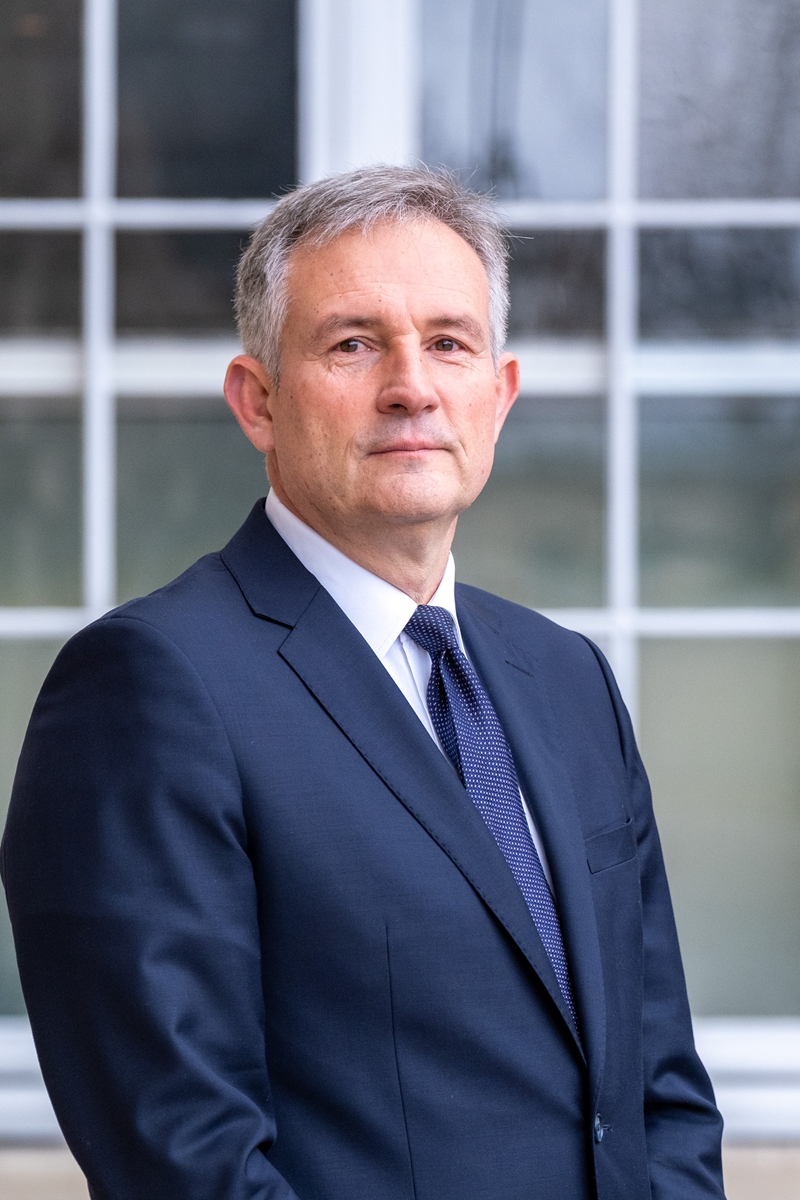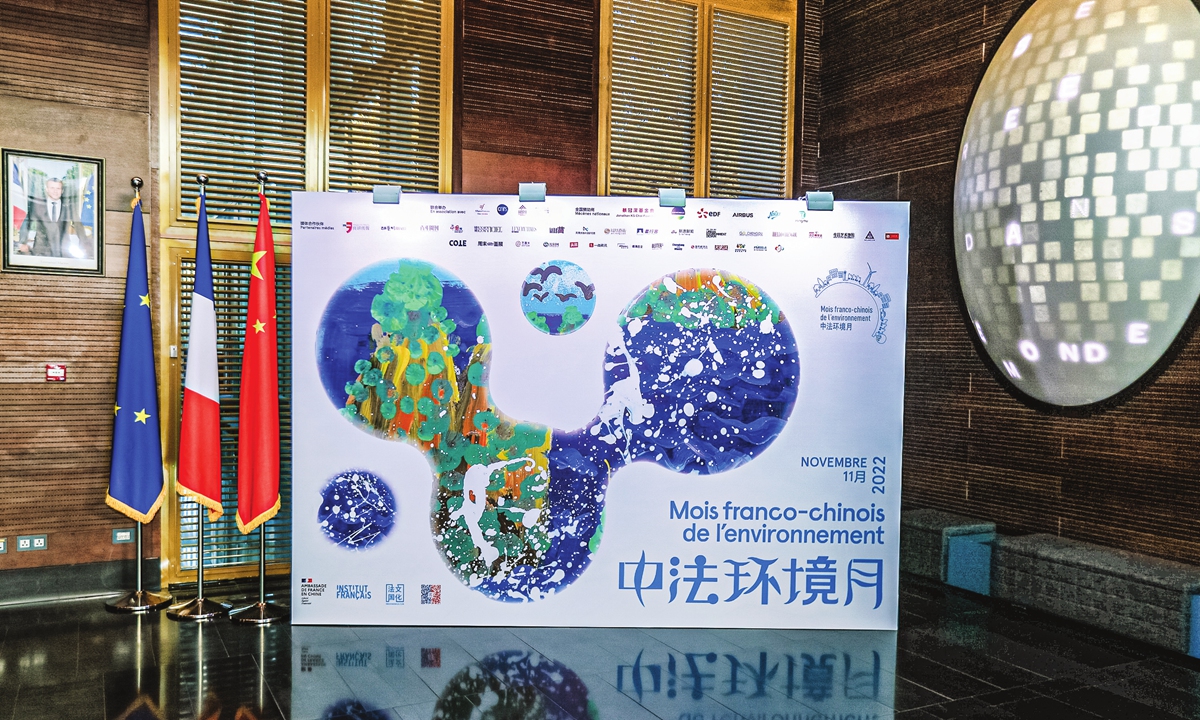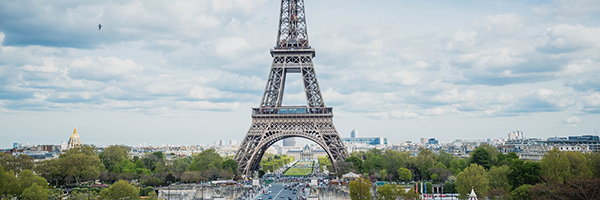Exclusive: China, EU can play a role in pushing toward de-escalation in Ukraine, cooperation on global issues: French Ambassador to China
Editor’s Note:
Chinese President Xi Jinping met with French President Emmanuel Macron on November 15 in Bali, Indonesia on the sidelines of the G20 summit. This was the first in-person meeting between the two leaders since the start of the COVID-19 pandemic. The two leaders reaffirmed their commitments to bolstering communication and coordination in response to the global challenges including climate change, biodiversity protection, and food security. Global Times reporters Chen Qingqing and Bai Yunyi (GT) interviewed French Ambassador to China Laurent Bili (Bili) exclusively as he talked about the prospects of China-France and China-Europe relations.

French Ambassador to China Laurent Bili Photo: Courtesy of French Embassy in China
GT: How do you comment on the latest meeting between Chinese President Xi Jinping and French President Emmanuel Macron? Recently, some media outlets reported that Macron is planning a visit to China soon, what’s your take on this?
Bili: France and China are strategic partners. President Emmanuel Macron and
President Xi Jinping have maintained regular contacts during the global pandemic. In the course of the last three years, they spoke to each other more than 10 times to discuss bilateral issues, regional matters such as the war in Ukraine or the Korean Peninsula situation, as well as global issues including the fight against climate change and food security.
However, face-to-face meetings are key to successful and substantial cooperation between our countries. The recent meeting between President Macron and President Xi in Bali was therefore important for the discussion of several issues of common interest, as well as issues of disagreement when necessary.
President Macron has already visited China twice since taking office and he is willing to visit China at the beginning of next year.

French food stand at the?China International Import Expo?(CIIE) in Shanghai on November 10, 2022. Photo: VCG
GT: Since the Ukraine crisis began, China-Europe relations have become more important and complex. Some in Europe call for the need to redefine relations with China, especially a clearer policy toward China. What’s your take on that? What aspects should the future China policy include? And do you think Europe should make the move of “decoupling” from China like some people suggested? Do France and Europe still need China?
Bili: The disagreements that exist between EU member states and China need to be addressed as candidly, respectfully and frankly as possible.
Regarding Ukraine, there is a simple truth: Ukraine didn’t invade Russia… While understanding China’s position, we choose to stand on the side of Ukraine and the Ukrainian people, who are suffering, and so the EU cannot be accused of being responsible for the prolongation of the war. I hope that we can now focus on finding common ground to work for peace and agreeing on the urgency of a de-escalation.
Moreover, no matter how important these disagreements may be, the EU and France consider they should not prevent cooperation on issues of common interests such as the fight against climate change, the protection of biodiversity or debt alleviation, that benefit other countries.
The relationship also needs to go both ways. This includes trade and investment given that the EU is China’s largest trade partner in goods and vice versa. The European and Chinese economies can thrive together based on shared principles of reciprocity and fairness.
GT: Recently, the 9th edition of the Franco-Chinese Month of the Environment kicked off at the French Embassy in Beijing, and with three important meetings on climate change scheduled . What specific work do you think China and France can do to implement climate cooperation? What do you think are the main obstacles to climate change cooperation in the global field?
Bili: I would like to emphasize the importance of tackling climate change and biodiversity loss together. Our collective efforts in the three COP summits are closely related. I see two main challenges for cooperation on these issues. First, the environmental crisis is as urgent as any other. The war in Ukraine, the COVID-19 global pandemic, as well as climate change already have tangible consequences for our economies and societies that need to be addressed simultaneously. Delaying the implementation of the Paris Agreement will be harmful for everyone. Second, tackling environment-related challenges with a global lens is more efficient than on a national basis. France and China’s encouraging results in the protection of the environment and biodiversity at home will only be meaningful if we simultaneously support the worldwide protection of forests, oceans, and biodiversity, and fight against deforestation – domestic and imported – and protect the high seas, including the deep seabed. China is aware of the emergency: China committed at the UNGA in 2020 to reduce the carbon intensity of its economy to peak its emissions before 2030 and reach carbon neutrality before 2060.
France and China have a long history of cooperation in supporting each other’s green transitions, notably through our Presidents’ “Beijing call” of November 2019. The Franco-Chinese Month of the Environment, which is on its 9th edition and started on November 4, offers further opportunities for French and Chinese civil societies to exchange insight on the challenges they face and the solutions they have found. This year’s edition is dedicated to the “blue planet,” which is a great reminder that the fight against climate change and for biodiversity protection is crucial both at home and abroad. France supports the idea that at least 30 percent of the planet’s land and oceans should be under protection by 2030.

The 9th edition of the Franco-Chinese Month of the Environment kicks off at the French Embassy in Beijing on November 4, 2022. Photo: Courtesy of French Embassy in China
GT: German Chancellor Olaf Scholz paid an official visit to China earlier this month. The visit is said to have enhanced China-Germany mutual trust and is conducive to the development of China-Europe relations. From your point of view, will there be new changes in China-Europe and China-France relations? During Chancellor Scholz’s visit, leaders of both countries reached a consensus on the Russia-Ukraine conflict. Is it likely for China and France to cooperate on the Ukraine issue?
Bili: Even though Europe and China look at the war in Ukraine from different perspectives, there is room for agreement on ways to reduce its negative consequences on a global scale. Again, Europeans and Chinese share a common attachment to the respect of Ukraine’s sovereignty and territorial integrity.
Building on this common ground, dialogue and cooperation between Europe and China on the Ukrainian crisis are possible. France welcomed China’s recent condemnation of threats to use nuclear weapons, which is consistent with the foremost responsibility of the Five Nuclear-Weapon States (France, China, the United Kingdom, the United States, and Russia) to avoid nuclear war and reduce strategic risks as underlined in the joint statement adopted by their five leaders in January 2022.
Food security, which is a major concern for developing countries, is another issue we should focus on. The impact of the war in Ukraine has stretched well beyond its borders as the whole world is affected by the rising costs of agricultural goods caused by the sharp drop in exports. From March 2022, France and its EU partners launched, for example, a food security initiative (FARM) in conjunction with the African Union in order to boost production and provide access to all. This will continue to be a priority for us.
GT: Since the Russia-Ukraine crisis, for some reasons, Germany and France have faced divergences in several areas, mainly in energy and defense. Do you think those divergences will expand and persist further? Will it affect European integration? How will such differences affect Europe’s overall stance on China and the US?
Bili: The Franco-German partnership lies at the heart of EU integration and this has still remained the case even after the outbreak of the war in Ukraine. Measures taken at the EU level in order to secure its energy supply and reduce its dependence on Russian gas and oil wouldn’t have been possible without close cooperation between our two countries. The European Union was built step by step, through crises and compromises, building bridges on shallow gaps or yawning abysses. In the end, Germany and France can always find common ground in the interest of Europe.
Leaders of our two countries continue to consult and coordinate in this regard. Most recently, President Macron met Chancellor Olaf Scholz in Paris at the end of October, and both agreed to maintain close coordination on European affairs, as well as on bilateral and foreign policy matters, including on Ukraine and the strengthening of European strategic autonomy.

 Chen Qingqing,
Chen Qingqing,